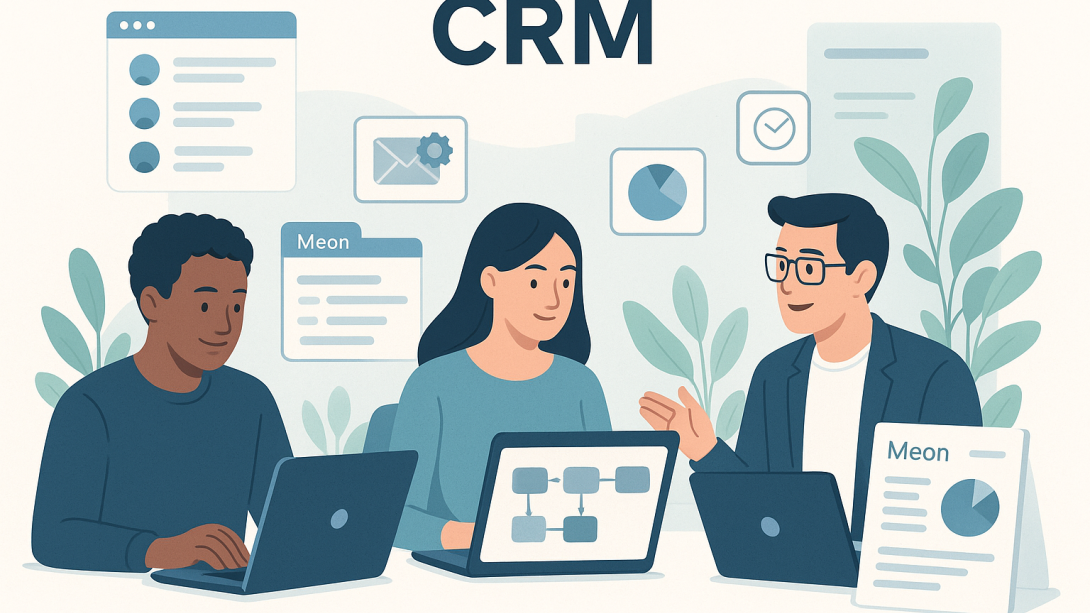What Is CRM? List of Top CRM Software for Businesses

In today's competitive business world, maintaining strong relationships with customers isn't just a good idea — it's a necessity. This is where CRM (Customer Relationship Management) software plays a crucial role. Whether you're a startup founder, a small business owner, or part of a growing sales team, understanding and using CRM software can significantly improve how you manage leads, close deals, and provide top-tier customer service.
In this article, we’ll explain what CRM is, why it matters, and provide a list of the top CRM software solutions available today — including one emerging option that’s particularly useful for small and medium-sized businesses.
What is CRM?
Customer Relationship Management (CRM) is a technology or system used by businesses to manage and analyze customer interactions and data throughout the customer lifecycle. The primary goal of CRM software is to improve customer relationships, assist in customer retention, and drive sales growth.
CRM tools help businesses streamline various functions including:
- Contact management
- Lead tracking
- Sales pipeline management
- Customer service
- Task and communication automation
- Data analysis and reporting
Whether you're tracking the first interaction with a potential customer or managing post-sale support, CRM software centralizes all the information you need in one place, making it easier to deliver personalized, timely, and effective communication.
Why is CRM Important?
For businesses of all sizes, CRM tools offer several advantages:
- Improved Customer Relationships
By having a 360-degree view of your customer’s history, preferences, and communication, you can deliver more personalized and consistent service.
- Boost in Sales Efficiency
CRM systems often include tools that automate repetitive tasks, such as sending follow-up emails or assigning leads to sales reps.
- Better Collaboration Across Teams
Everyone in your organization — from sales to marketing to customer support — can access the same up-to-date customer information.
- Data-Driven Decisions
Built-in reporting tools help businesses analyze trends, measure performance, and forecast sales more accurately.
- Customer Retention
With timely communication, reminders, and support, businesses can increase customer satisfaction and loyalty.
Key Features to Look for in a CRM
When choosing a CRM for your business, especially as a small or mid-sized company, it’s important to consider the following features:
- Easy-to-use interface
- Customizable workflows
- Contact and lead management
- Sales tracking and pipeline visualization
- Task and calendar integration
- Email and communication tracking
- Reporting and analytics
- Mobile accessibility
- Integration with tools like email, marketing, and support platforms
Now that you understand what CRM is and why it’s vital, let’s look at some of the best CRM software available today.
Top CRM Software for Small and Growing Businesses
1. HubSpot CRM
Best for: Beginners and small businesses
HubSpot CRM offers a robust free plan that includes contact management, deal tracking, and basic automation. It’s ideal for teams getting started with CRM.
Pros:
- Free version available
- Clean, intuitive interface
- Integrates with HubSpot marketing tools
Cons:
- Advanced features require paid upgrades
- Customization is limited in the free plan
2. Zoho CRM
Best for: Affordability and customization
Zoho CRM is a flexible platform offering lead and deal management, automation tools, and AI assistance. It suits small businesses needing more tailored solutions.
Pros:
- Competitive pricing
- Extensive customization options
- Strong automation features
Cons:
- Learning curve for beginners
- UI can feel cluttered
3. Salesforce
Best for: Large teams and enterprises
Salesforce is one of the most powerful CRM platforms, offering endless customization and enterprise-grade tools. However, it’s not always ideal for small businesses due to cost and complexity.
Pros:
- Scalable and comprehensive
- Wide app ecosystem
- Industry-specific solutions
Cons:
- High pricing
- Steep learning curve
4. Meon CRM
Best for: Small and medium-sized businesses looking for simplicity and results
While not as widely known as some larger names, Meon CRM has been gaining attention for its practical approach to CRM. Designed with small businesses in mind, it focuses on essential features that actually help teams work smarter.
It offers lead and contact management, sales tracking, automation, and reporting — without overwhelming users with features they don’t need. It’s particularly suitable for teams that want a solution that’s easy to implement and grow with.
Why Consider Meon CRM?
- Clean, easy-to-use interface
- Designed for real-world small business needs
- Reliable performance without excessive costs
- Helpful support and regular feature updates
For businesses that need a cost-effective, scalable, and focused CRM, Meon CRM is a solid choice that delivers value without the clutter.
5. Freshsales (by Freshworks)
Best for: Teams wanting built-in phone and email features
Freshsales offers contact and deal management, AI-based lead scoring, and built-in communication tools like email and phone.
Pros:
- Built-in communication tools
- AI suggestions
- Free version available
Cons:
- Limited customization in lower-tier plans
- Pricing can add up for larger teams
6. Pipedrive
Best for: Sales-focused teams
Pipedrive is a visual, pipeline-centric CRM that’s perfect for sales teams who want a clear view of their funnel and priorities.
Pros:
- Highly visual sales pipeline
- Easy drag-and-drop functionality
- Good mobile app
Cons:
- Fewer marketing tools
- Some features cost extra
Final Thoughts
Choosing the right CRM software is a key decision for any business. While there are many excellent options out there, the best CRM for your business depends on your size, goals, and budget.
If you're just getting started or scaling a small to medium-sized business, it's smart to look beyond the big names and consider platforms like Meon CRM — tools that offer essential functionality, ease of use, and reliable support without unnecessary complexity or high costs.
Investing in the right CRM will not only help you manage your contacts but also give you the structure and insights needed to build stronger customer relationships, close more deals, and grow your business.